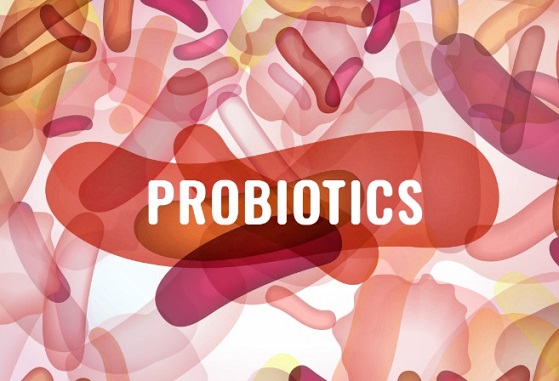Nikhil Prasad Fact checked by:Thailand Medical News Team Jan 15, 2025 2 months, 4 weeks, 1 day, 6 hours, 39 minutes ago
Dental News: Understanding Periodontal Disease and Its Challenges
Periodontal disease, a widespread inflammatory condition affecting the gums and supporting tissues of the teeth, impacts over half of the global adult population. Severe cases of periodontitis can lead to tooth loss and systemic health issues such as diabetes and cardiovascular diseases. The root cause often lies in an imbalance of oral bacteria - a state known as dysbiosis. Harmful bacteria, like Porphyromonas gingivalis and Aggregatibacter actinomycetemcomitans, dominate, triggering inflammation and tissue damage. Traditional treatments focus on mechanically reducing bacterial load but fail to restore microbial balance.
 Probiotic Therapy Boosts Periodontal Treatment Outcomes
Probiotic Therapy Boosts Periodontal Treatment Outcomes
This
Thailand Dental News report explores groundbreaking research on probiotics as a supplementary therapy for periodontitis. Researchers from Apollonia University, Romania, and the University of Oradea, Romania, have investigated whether probiotics can improve periodontal health by restoring microbial balance and reducing inflammation.
The Study Design: Probiotics in Action
The study was conducted as a randomized, double-blind, placebo-controlled trial involving 80 participants diagnosed with moderate-to-severe periodontitis.
Participants were divided into two groups: Group A received standard periodontal treatment combined with a daily probiotic supplement containing Lactobacillus reuteri (2 × 10⁹ CFU) for eight weeks, while Group B received standard treatment with a placebo. Researchers assessed clinical parameters such as gingival inflammation, bleeding, and periodontal pocket depth. Microbiological changes and inflammatory markers like interleukin-1 beta (IL-1β) and tumor necrosis factor-alpha (TNF-α) were also evaluated.
Key Findings: Probiotics Make a Difference
The results revealed significant improvements in Group A compared to Group B:
-Reduction in Harmful Bacteria: Group A showed a marked decrease in P. gingivalis and A. actinomycetemcomitans levels. For example, P. gingivalis levels dropped from 4.8 × 10⁶ to 1.2 × 10⁶ CFU. Conversely, Group B showed only modest reductions.
-Increase in Beneficial Bacteria: Levels of Lactobacillus spp. and Bifidobacterium spp. in Group A increased significantly, while no substantial changes were observed in Group B.
-Improved Clinical Outcomes: Group A experienced significant reductions in the gingival index (1.83 points) and bleeding index (1.3 points), alongside a 2.42 mm decrease in periodontal pocket depth. In Group B, these improvements were less pronounced, with a reduction of only 0.84 points in the gingival index and 0.41 mm in pocket depth.
- Inflammation: Inflammatory markers showed a substantial decline in Group A, with IL-1β decreasing by 37% and T
NF-α by 42%. In contrast, Group B experienced reductions of only 7% and 6%, respectively.
Mechanisms Behind Probiotic Efficacy
Probiotics, live beneficial bacteria, help restore oral microbial balance through several mechanisms:
-Competition and Inhibition: Probiotics outcompete harmful bacteria for nutrients and adhesion sites, disrupting their biofilms.
-Immune Modulation: Probiotics reduce pro-inflammatory cytokines, mitigating tissue damage.
-Enhancing Healing: By restoring microbial balance, probiotics promote a healthier environment for tissue repair.
The Study’s Broader Implications
This research underscores the potential of probiotics as a game-changer in periodontal treatment. Traditional mechanical therapies effectively reduce bacterial load but often fall short in addressing dysbiosis. By incorporating probiotics, clinicians can enhance treatment outcomes, reduce relapse rates, and improve patient quality of life.
Limitations and Future Directions
While the findings are promising, the study’s eight-week duration limits insights into long-term effects. Additionally, the sample size was moderate, necessitating larger, extended studies to confirm these results and explore optimal dosages and probiotic strains.
Conclusion
Probiotic therapy, particularly with Lactobacillus reuteri, represents an innovative approach to periodontal treatment. By addressing both bacterial imbalance and inflammation, probiotics enhance the efficacy of standard therapies. These findings pave the way for integrating probiotics into routine periodontal care, promising improved outcomes and long-term oral health.
The study findings were published in the peer-reviewed journal: Medicina.
https://www.mdpi.com/1648-9144/61/1/126
For the latest
Dental News, keep on logging to Thailand Medical News.
Read Also:
https://www.thailandmedical.news/news/n-chlorotaurine-shows-promise-against-gum-disease
https://www.thailandmedical.news/news/diy-guide-for-checking-for-mouth-or-oral-cancer
https://www.thailandmedical.news/articles/dental-news
